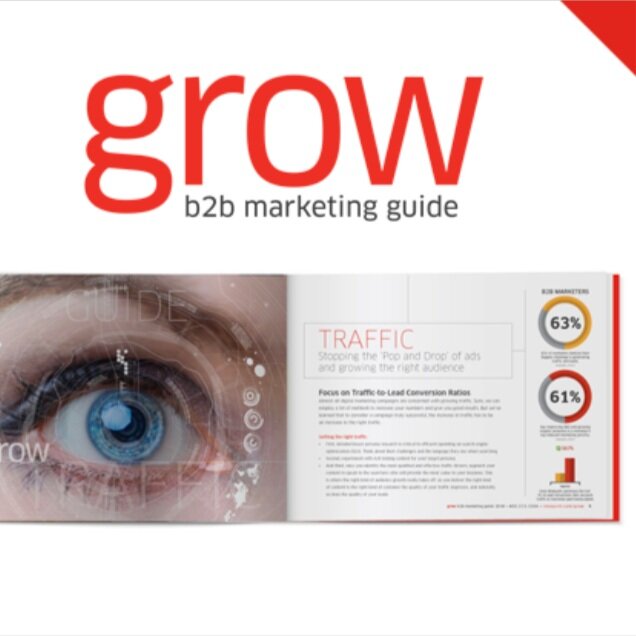 Content marketing is a widely used tool for B2B marketers. According to the Content Marketing Institute and MarketingProfs study B2B Marketing Content: 2017 Benchmarks, Budgets, and Trends:
Content marketing is a widely used tool for B2B marketers. According to the Content Marketing Institute and MarketingProfs study B2B Marketing Content: 2017 Benchmarks, Budgets, and Trends:
- 89 percent of B2B marketers use content marketing;
- Out of the 11 percent who do not, 52 percent say that they plan to launch a content marketing effort within 12 months; and
- Only 30 percent of B2B marketers say their organizations are effective at content marketing, which is down from 38 percent last year.
If content marketing is so widely used, why is favorability in decline among those who utilize it? Well, it turns out, organizations may want to consider how they implement and evaluate their strategy. Many organizations are not able to effectively evaluate their content marketing’s success because, the research shows, they don’t even know what it looks like.
While 44 percent of B2B marketers say their organization is clear on what content marketing success or effectiveness looks like, 55 percent are unclear or unsure. Which begs the question: What does successful content marketing look like?
Successful content marketing is based on four key elements: documentation, clarity around success, good communication and, most importantly, experience.
1. Documentation
Any destination is easier to find with the aid of a detailed set of directions. It’s important for any B2B marketer to have a well thought-out plan. The research shows that 48 percent of the most effective marketers have a documented editorial mission statement.
Furthermore, the likelihood of having a documented editorial mission statement increases if the marketer also has a documented content marketing strategy. More than half of those with a documented content marketing strategy also have a documented editorial mission statement.
B2B marketers who have a documented content marketing strategy get better results from their content marketing tactics, social media platforms, and paid methods of content distribution.
While fewer B2B marketers have a documented content marketing strategy compared with last year (32 percent vs. 35 percent), research shows that 61 percent of the most successful content marketers have a documented strategy.
2. Clarity around success
Without clear and realistic expectations, implementing and executing successful content marketing can feel like driving in the dark. Eighty-one percent of the most successful content marketers are clear on what an effective or successful content marketing program looks like.
Furthermore, 91 percent are realistic about their goals. B2B marketers whose organizations have a clear vision of content marketing success are more effective than those that do not. The numbers are staggering: 79 percent of the most effective marketers have clarity, while 77 percent of the least effective marketers do not.
B2B marketers say that the top contributing factors of increased success are:
- Higher quality and more efficient content creation.
- Development or adjustment of strategy.
- Greater priority for content marketing.
- More time spent on content marketing.
- Better targeting and identification of content distribution.
- Organizational changes or new staffing towards content marketing roles.
- A growing ability to show results.
3. Good communication
As with any team, communication is part of a winning formula. Fifty-four percent of marketers say team meetings are valuable. In fact, the more frequently a team meets, the more successful they are likely to be. Sixty-one percent of the most effective marketers meet daily or weekly.
You can use team meetings to formulate and/or implement:
- A plan to operate content marketing as an ongoing business process, not simply a campaign.
- Content mission and a differentiated story/value to deliver.
- Deep understanding of buyer personas.
- A process to align with other sales/marketing/loyalty initiatives.
- Well-defined business goals for content.
- A measurement plan to provide both insight and progress toward the business goals.
- The ability to scale over time (i.e., to grow along with your organization)
4. Experience
In general, experience is vital to the success of content marketers. The research shows that organizations that use content marketing are roughly equally apportioned in terms of maturity levels. Out of the three stages of maturity (early, adolescent, and sophisticated/mature), a third of all organizations were represented in each category.
The research shows that while content marketing is effective, implementing it is intricate and time-consuming. Lack of adequate documentation, clarity around success, communication and experienced employees can impede your ability to achieve proper ROIs on your campaigns. Outsourcing your content marketing initiatives could point you in the right direction while ensuring that you achieve your desired outcomes. ![]()







 By
By 
